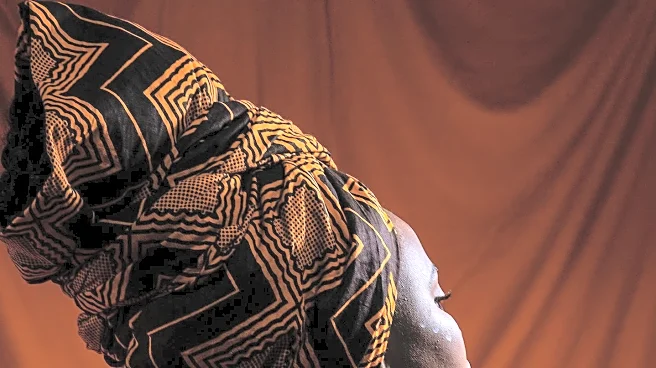What's Happening?
In Nigeria, the art world is experiencing a significant shift in philanthropy, driven largely by women who are redefining cultural stewardship. These women are establishing galleries, fairs, artist residencies, and alternative schools, moving away from dependency on Western models towards context-specific systems of care. The absence of structural support, such as tax incentives and public funding, has led to a reliance on improvisation and personal initiatives. This informality allows for agility but limits scalability and sustainability. Commercial galleries, once seen as transactional spaces, now function as hybrid institutions nurturing artists and generating market access. Notable galleries include Rele Gallery, Retro Africa, and Bloom Art Lagos, all run by women who integrate philanthropic collaborations into their operations. These efforts are reshaping the values and infrastructure of Nigeria's art landscape.
Why It's Important?
The transformation in Nigerian art philanthropy is crucial as it addresses the gaps left by the absence of state support. Women-led initiatives are not only fostering talent but also challenging traditional Western philanthropic models by prioritizing community-based practices. This shift is significant for the local art ecosystem, promoting cultural pride and strengthening global connections. The focus on private patronage highlights a cultural responsibility among wealthy Nigerians, who are increasingly viewing art patronage as more than a status symbol. However, this reliance on private tastes raises concerns about skewed public narratives and the potential sidelining of less commercially appealing practices. The evolving landscape underscores the importance of critical engagement and long-term institutional thinking.
What's Next?
As Nigerian art philanthropy continues to evolve, there is a growing need for deeper structural support, including educational programs and independent publishing. The rise of independent curators and alternative spaces signals a shift towards more diverse practices, but support remains precarious. The future lies in sustained local investment in thought, care, and curatorial depth, alongside international recognition. The ongoing improvisation and personal conviction driving Nigerian philanthropy will continue to shape the art ecosystem, with women at the forefront of creating systems that allow art to thrive.
Beyond the Headlines
The shift in Nigerian art philanthropy highlights broader cultural and ethical dimensions, particularly the role of women as architects of the ecosystem. Their leadership challenges dominant paradigms and introduces curatorial thinking and experimentation into a market-driven scene. The focus on community-based practices reflects a cultural tradition of communal responsibility, offering a model that could influence global philanthropic approaches. The emphasis on visibility and sustainability within commercial galleries underscores the potential for art to serve as a powerful agent for social change.









